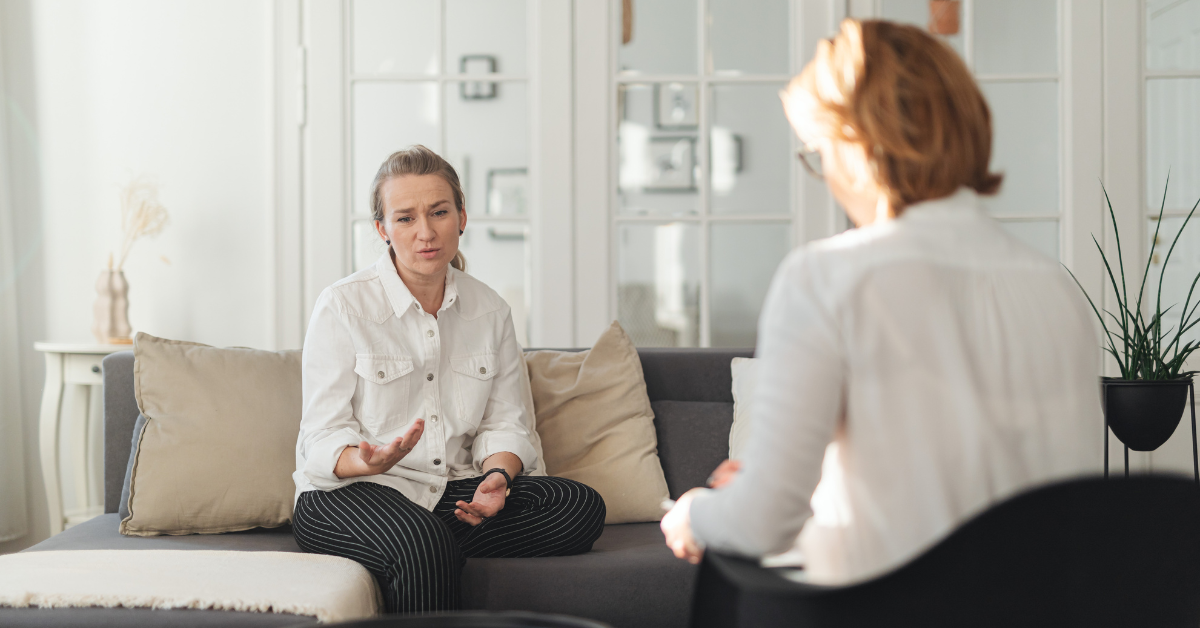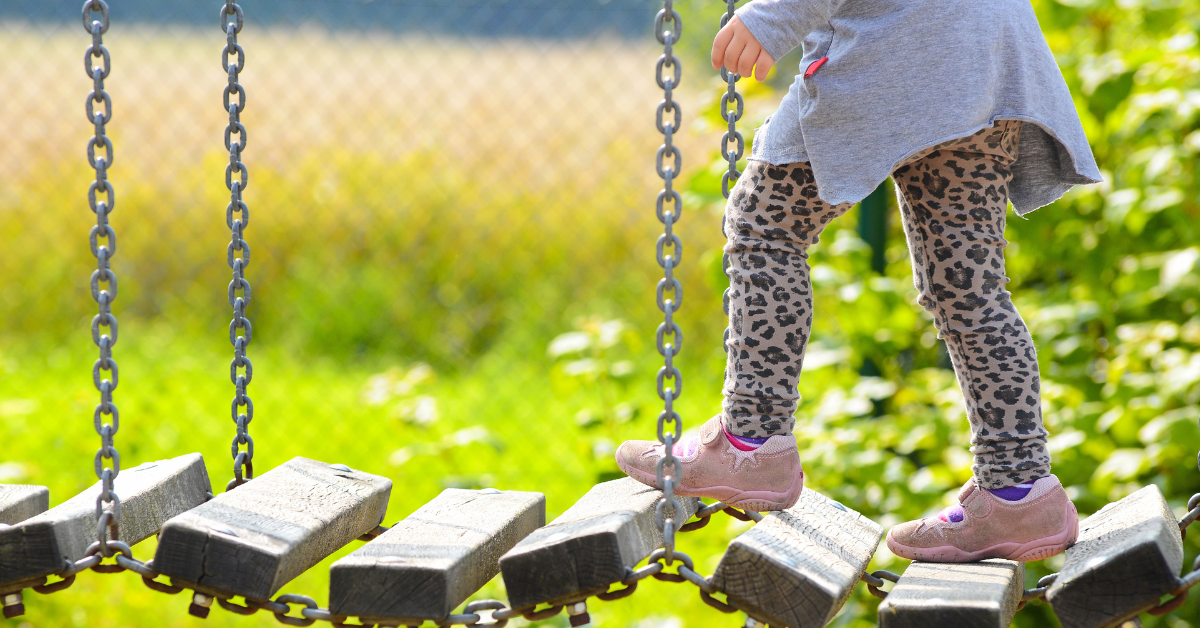147. Does Talking About OCD Make It Worse?: 3 Reasons Why
In this episode, Carrie delves into the reasons why talking about OCD can sometimes exacerbate the condition. She discusses how reassurance-seeking, co-rumination, and the urge to “go deep” can create unhealthy cycles that hinder healing.
Episode Highlights:
- The harmful cycle where temporary relief from anxiety can lead to increased obsessive thoughts and compulsions.
- Why traditional talk therapies may be ineffective for OCD and can sometimes reinforce compulsive behaviors.
- How to identify when OCD is influencing your thoughts and behaviors, enabling you to take proactive steps towards healing.
- Discover practical strategies for staying grounded in the present moment, which is essential for overcoming OCD and resisting its narratives.
Episode Summary:
Welcome to Christian Faith and OCD! I’m Carrie Bock, a Christ follower, wife, mother, and licensed professional counselor dedicated to helping Christians struggling with OCD find deeper healing.
In today’s episode, I’m exploring whether talking about OCD can actually make it worse, sharing three key reasons why it might. As a therapist, I naturally see value in discussing problems, but when it comes to OCD, traditional talk therapies often fall short. Many people mistake their symptoms for general anxiety, spending sessions sharing worries without finding lasting relief. Here’s why this approach may not work and what we can do instead..
Here are three reasons why:
- Reassurance Seeking: Repeatedly asking for validation to ease anxiety may offer temporary relief, but it reinforces the OCD cycle, causing obsessions to resurface.
- Co-Rumination: Constantly discussing worries, especially about unsolvable issues, can deepen distress and worsen OCD symptoms.
- Going Deep: Trying to understand issues at a deeper level often leads to obsessive thinking instead of grounding you in the present.
Tune in to learn more about these traps and how to avoid them. For additional support, head to carriebock.com/OCD
Explore Related Resources:
Transcript
Episode 147. Does talking about OCD make it worse? Let’s find out. I’m going to give you three reasons why.
Hello, and welcome to Christian Faith and OCD with Keri Bach. I’m a Christ follower, wife and mother, licensed professional counselor who helps Christians struggling with OCD get to a deeper level of healing. When I couldn’t find resources for my clients with OCD, God called me to bring this podcast to you with practical tools for developing greater peace.
We’re here to bust through the shame and stigma surrounding struggling with OCD as a Christian, sharing hopeful stories of healing and helping you replace uncertainty with faith. I’m here to help you let go of the past and future to walk in the present abundant life God has for you. So let’s dive right in to today’s episode.
If you are like me, you like talking through problems. I mean, hello, I’m a therapist, obviously I do this on a regular basis. I’m However, not just with clients talking through their problems, but if I have my own problems, a lot of times I’m going to friends or family members or other people to really try to sort through things, talk it out, and figure things out.
Here’s where we run into problems with OCD though, and this is why traditional talk type therapies don’t work with OCD. There are lots of people who don’t realize they have OCD, think they have anxiety. Go to a therapist to talk about all the things they’re anxious about. And next thing you know, they’re in therapy, they feel a little bit better, they leave, they don’t feel any better.
And they repeat this cycle week after week after week, like, hey, here’s what’s going on with me this week, this is what I’m worried about, it’s what’s bothering me. The therapist provides them some type of solution based or thought challenging or reassurance, and then it doesn’t ever seem to help. That’s why this topic is so important.
The first reason talking about OCD can make it worse is Reassurance seeking. This is a really common one with OCD, right? You have a question, you really want to ask your therapist, or your spouse, or your friend, do you think that I’m a horrible person, or did I offend you, or is this object clean, what do you think?
Reassurance seeking is a compulsion. I know it is super hard to not ask for reassurance sometimes, but it’s important to try to hold off if you can, because the reassurance seeking only continues and reinforces that OCD cycle in your brain, where you have an obsession, then there’s some anxiety. There’s a compulsion, and there’s temporary relief.
People seek reassurance because it works, they do get some relief from it, but then the next thing you know, they are becoming anxious again because the obsession just goes right back. And sometimes you may feel like the obsession comes back even stronger. I feel like we could do an entire episode on reassurance seeking, but I’m going to spare you that for right now.
If you think you might be reassurance seeking, you can ask yourself to evaluate, Am I feeling this urge to get this information? And do I feel like if I get that information, there’s going to be some internal calm or slight relief from this anxiety? That’s a good indicator because you may have gotten really sneaky about how you’re asking for reassurance.
It doesn’t always sound as direct as, is this object clean, or have I offended you or upset you in some way. The second reason talking about OCD can make it worse is that you may be participating in co rumination. I have a confession to make. I was working with a client who had some scrupulosity obsessions about a variety of different issues related to Christianity and the Bible.
I was receiving some supervision, so I was talking with another OCD counselor about how can I help this client better? What are we doing? It just doesn’t seem to be working. And she completely called me out on it in a very nice and loving way and said, you are co ruminating with this client because these issues are so important to you and you see that and so you want to talk about these things.
And I was like, oh my goodness, you know, sometimes you don’t even see what you’re doing and you need someone else to point it out to you. You might be co ruminating with someone if you were trying to solve a level of uncertainty. that we have to sit with. So I’ll give you an example. If you’re really stuck on whether or not God created the earth in seven literal days or periods of time, and you’re scouring over all this evidence for the seven day creation versus the, hey, the word for day means period of time, and so I don’t know, was it, how do we have a literal day when we don’t have the planets yet?
All very interesting and philosophical questions, certainly things that Steve and I have talked about, have talked about with other people, but in those conversations, we don’t have a high level of distress over this. We’re just saying, this is an interesting topic and there’s different views on it, obviously.
If you are spending a large amount of time trying to figure something like that out that’s not solvable, Because it requires a certain level of faith, you might be co ruminating with someone. If you have talked someone to death about the same topic and haven’t come to a resolution about it, you might be co ruminating with that person, or another person’s response might be like, I have no idea why you’re stuck on this, it really doesn’t matter that much to them, but to you, it feels like I have to resolve this, or otherwise that means I don’t know, whatever you’re saying that it means, that you don’t have enough faith or you’re not sure if you can love God unless you understand all of these different nuances of things that occurred in the Old Testament.
Reassurance seeking, co ruminating can be very sneaky. You may not realize you’re doing it, your friends and family may not realize you’re doing it. You can see how reassurance seeking and co ruminating can become really problematic in therapy Obviously, we’re here to talk with you about things, but there also has to be some kind of strategy behind it, and often redirection, for you to notice when you’re in the OCD bubble.
I’ve had clients where I’ve spent a lot of time helping them recognize that what they were dealing with was OCD. Because there may have been a level of lack of insight, just feeling like they’re ruminating about these things all the time and thinking, like, this is my own thought process versus OCD has gotten you completely down an unhealthy rabbit hole.
The third reason why talking about OCD can make it work is a trick that OCD will play on you called going deep. Going deep is where you feel like you just have to understand something more at a deeper level. This may cause a lot of research, but it may also be connected to these other two that we talked about, reassurance seeking and corruminating, because you may be talking to other people trying to gain more understanding. Like, “if I just understand everything there is to know about germs, then I will be able to keep myself safe and not get sick. If I really understand these deep theological issues then that means I will feel more secure in my salvation or relationship with God.” Going deep doesn’t work because it actually just moves you farther and farther into the OCD instead of grounding you back in reality.
This is what we’re trying to do in ICBT is keep you connected to the present moment experience instead of the narrative that OCD is telling you is happening right now or what OCD is telling you is going to happen in the future. There’s a distinct difference, and the more that you understand what we call the tricks and cheats of OCD, the The more that you understand your own obsessional story that OCD is crafting for you, the better that you can do in staying in reality and trusting your sensory experience.
If you want to know more about that, our next ICBT Learning Sessions for Christians will be starting in January. Getting on our email list is the absolute best way to do that, and you can also join the waiting list at karybach. com slash OCD. Can I tell you a secret about our next learning sessions?
They’re going on sale in November. Okay, it’s not a secret. The cat’s out of the bag now. But in all seriousness, the only way to find out about the November sale for the January Learning Sessions is to get on the waitlist. So there will be information to our email subscribers about that and you can go to carriebock.com/OCD.
Until next time, may you be comforted by God’s great love for you. Were you blessed by today’s episode? If so, I’d really appreciate it if you would go over to your iTunes account or Apple Podcasts app on your computer if you’re an Android person and leave us a review. This really helps other OCD be able to find our show.
Christian Faith and OCD is a production of By The Well Counseling. This podcast is for informational purposes only and should not be a substitute for seeking mental health treatment in your area.









